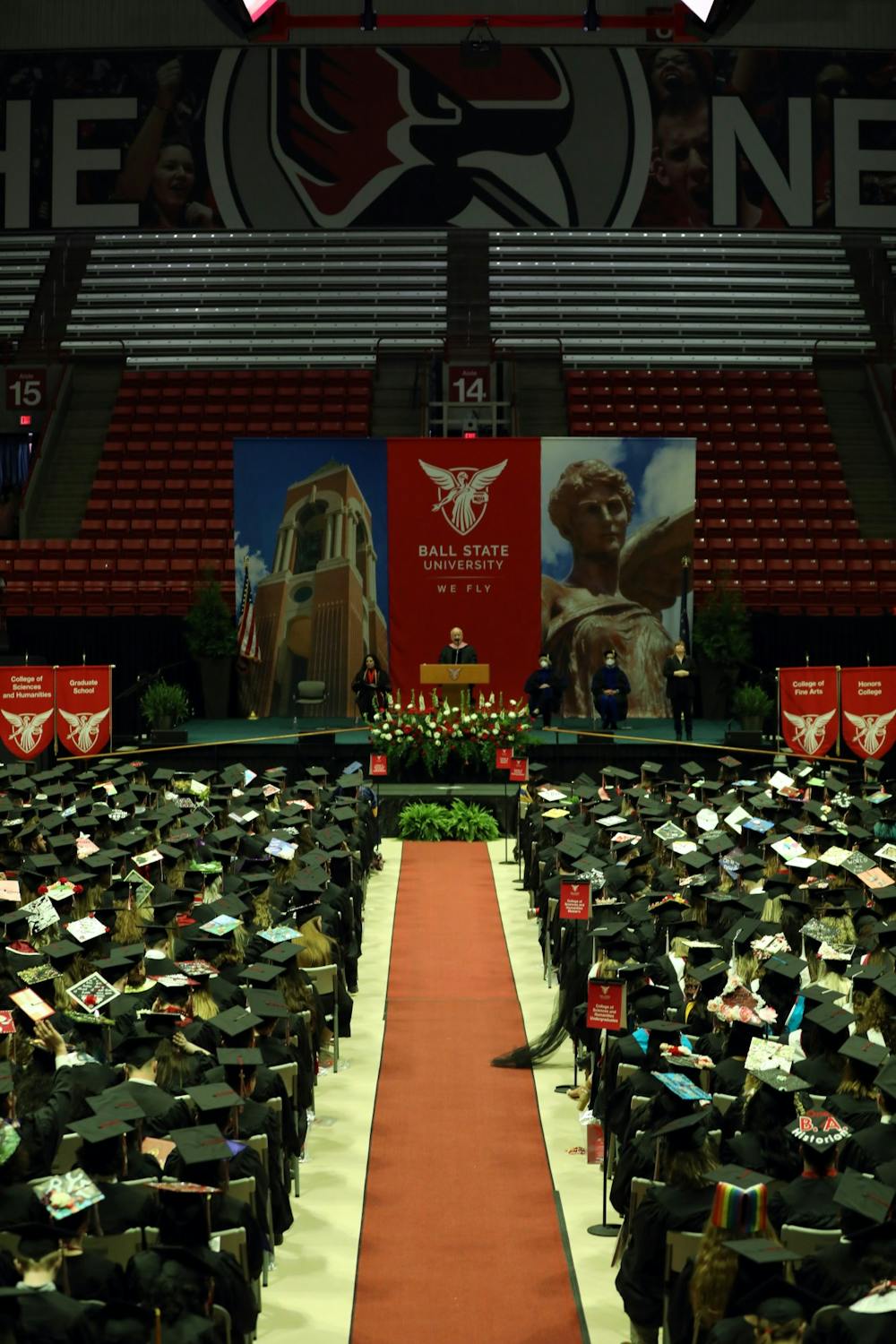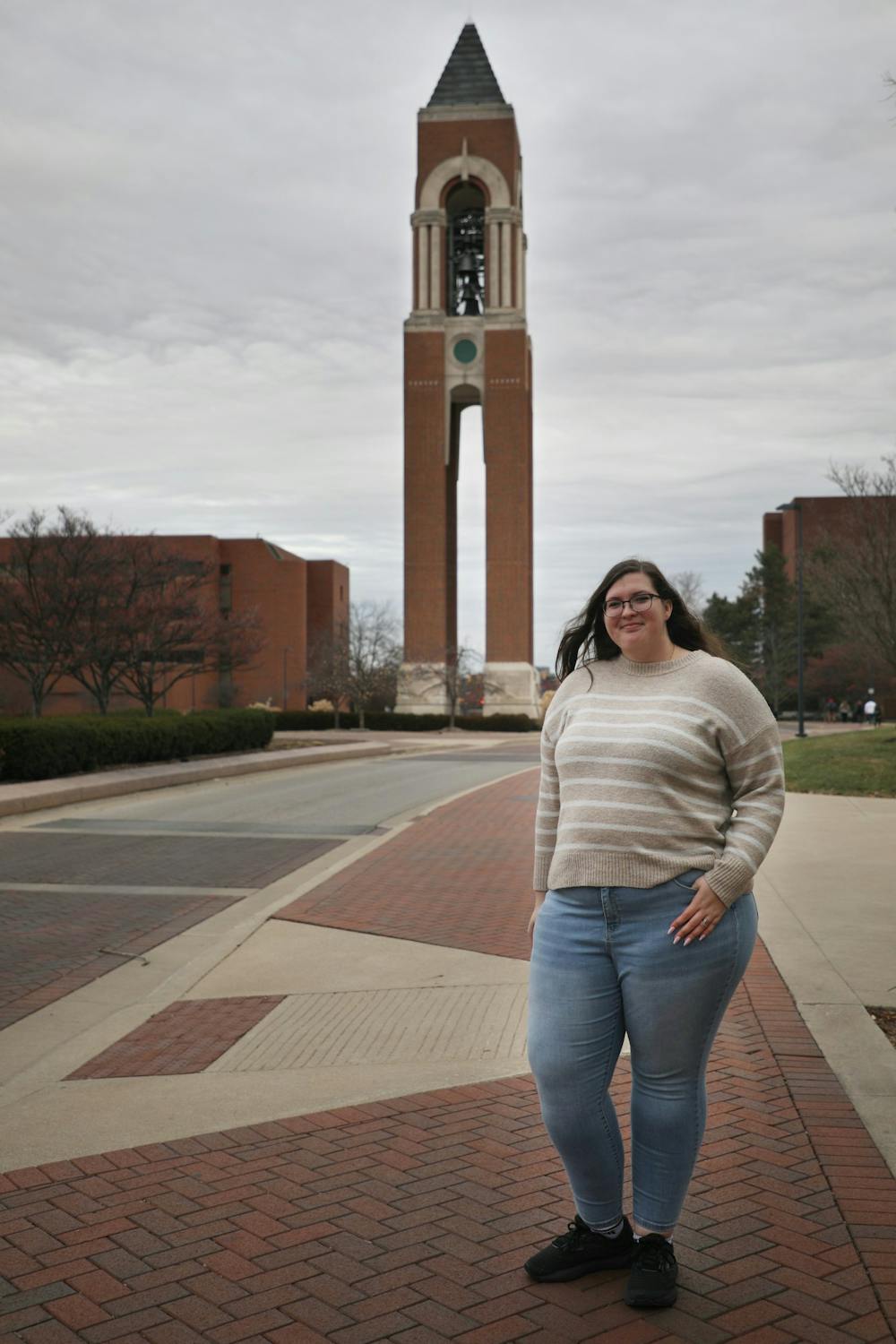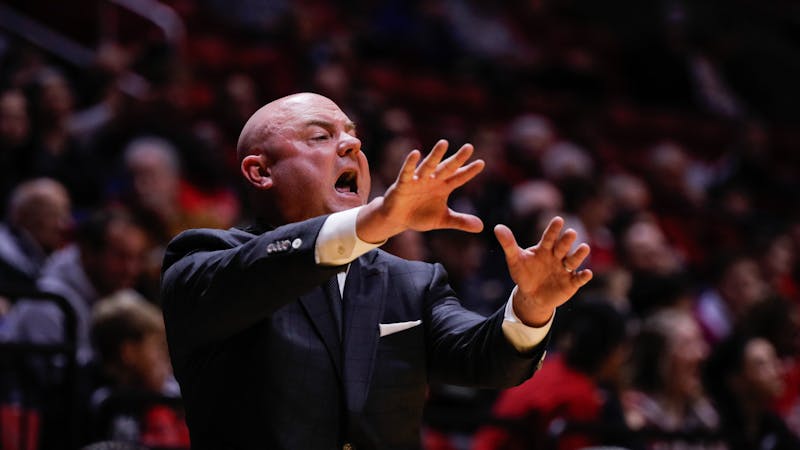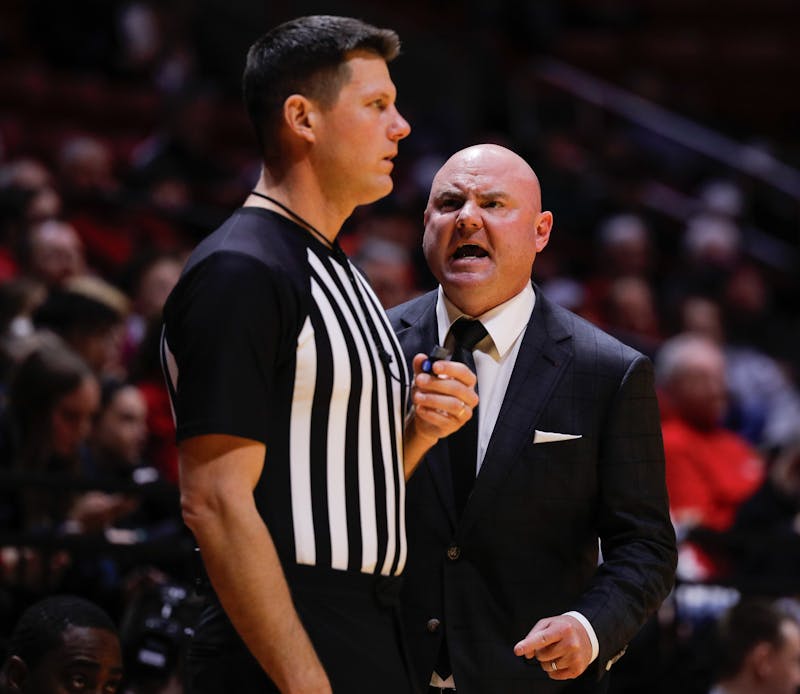Editor’s note: As Hannah Amos worked under Grace McCormick during her time as News Editor, current News Editor Kyle Smedley interviewed McCormick for this story.
With much of their college experience plagued by COVID-19 and further cut short by their decision to graduate in December, fall 2022 semester graduates have had a different college experience than most.
Emily Moore, third-year telecommunications major with a concentration in digital video production, said her early graduation comes down to her decision to not stay in Indiana post graduation to better serve her career.
“I felt that it was easier to move in the beginning of a year versus in the middle of summer. It’s a very busy time,” Moore said. “I found it was easier to find jobs … in the earlier of the year, more like the January to February range.”
The job market was also a factor for Abigail Warren, fourth-year nursing major with a minor in psychology of human development.
“I feel like I have more job opportunities and that it’s going to be less exhausting,” Warren said. “I can push myself through the next two weeks because it’s my last finals week.”
When Charles Melton, December 2020 graduate, enrolled Ball State, he made the decision to graduate early, mainly to help him financially. Though his mother was working at Ball State, which gave him a discount, Melton paid his way through college.
He ended up finishing school without needing to take out any loans.
Grace McCormick, May 2022 graduate, flew from the Cardinals nest within three years, also deciding to graduate early due to financial reasons.
Similar to Melton, McCormick decided two weeks into her first year at Ball State she wanted to graduate early. From there, she sat down and planned her schedule accordingly.
“I don't think it would have worked if I didn't know what I wanted to do,” McCormick said. “I'm pretty lucky to know that I've wanted to be a journalist, basically, since I was a teenager.”
McCormick felt she didn’t need to be at Ball State for four years, feeling ready for the next step.
“I got what I came there for,” McCormick said. “I had leadership positions at The [Ball State] Daily News, on the speech team and had a little bit of a social life too. So, I don't really know what would have been different, honestly, if I had stayed there all four. I was pleased with the experience.”
After Melton graduated, he took an off year where he worked in a factory in Muncie. He felt the job at the factory was a great opportunity.
“That year in the factory, working kind of [a] blue-collar style job is a huge learning experience,” Melton said. “That helps you know more about being a Muncie native, never [having] seen that side of Muncie and being a part of that and participating in learning about that was a great experience.”
At the time, he was only focused on gaining more money for financial stability, and the off year gave him time to focus on his media job applications much more than he felt staying in college would have.
Only having to focus on his factory job while doing a job search was much easier to juggle compared to having to do so while also in college, Melton said.
McCormick’s experience with the job search after graduating differs from Melton’s in that while Melton took an “off year,” McCormick felt the job search was “about the same” as other graduates.

Her job search lasted a few months after graduation. She applied for eight to 10 jobs and interviewed for around six.
She felt when it came to this job search, her graduating early wasn’t of much importance.
“Unless I brought it up, nobody cared that I graduated in three years,” McCormick said. “On my resume, it says that I have a degree … The only thing that anyone cared about was that I was qualified for the job. It didn't matter if I did it in two, three, six years.”
However, she said she is thankful for the fact she graduated early because the position she has now at Richland Source wouldn’t have been open this upcoming spring.
Melton, however, views that employers do care about applicants who graduate early. He felt that students who graduate early can be a deciding factor in getting a job because he thought it showed determination and passion.
For Warren, as she gets ready to leave the Cardinals behind, graduating early isn’t all positive. Technically, she is graduating late after taking a break before eventually going into Ball State’s nursing program. She explained a lack of solidarity due to not graduating with those she began her college career with.
“The kind of camaraderie that you have with the entire class that you started with? I don’t have that,” Warren said. “I don’t know half the people in my class.”
For both Warren and Moore, the soon-to-be graduates, campus involvement helped them feel like they had a place at Ball State. For Warren, it was through Greek life.
“I think that the thing that’s been most impactful is Phi Mu,” Warren said. “I know that sounds silly, like ‘Sorority life, it’s where you’ll find your sisters,’ but I really did. These people are going to be at my wedding; they’re friends for life.”
Both were heavily involved in various organizations, a highlight for Moore being her involvement in the Frog Baby Film Festival.
Due to COVID-19, however, her experience with the group was limited, as was Warren’s time in Phi Mu. Enzo Lundy, a fourth-year urban and regional planning major, was impacted academically.
“There were times where I lacked a lot of motivation, especially since I was at home,” Lundy said. “Being on campus, seeing other students and students studying and just getting to interact face-to-face with my teachers made a huge difference in how I approach coursework.”
For Moore, this shortened time created a conflict when deciding to graduate early.
“There are people who go here … that I was in high school with and I’m still very close with to this day,” Moore said. “It was a hard decision knowing that I’m not going to be next to them [like] how we were in high school.”
That idea of fellowship and shared experience seems to be the X-factor — the downside for both fall graduates: the idea they won’t be next to the people they came here with. That kind of camaraderie is gone, and Moore, Lundy and Warren said they often feel less important than the “normal” spring semester graduates.
“We already feel like no one’s going to come and nobody cares that we’re graduating because a lot of it is girls and guys that are graduating late like me. Not a lot of people are graduating early,” Warren said.
Even the pinning ceremony for nursing majors has been moved from Emens Auditorium to Pruis Hall, which Warren described as “putting lemon in the cut.”
Lundy is also slated to graduate at the end of the fall semester. He said he doesn’t necessarily feel overlooked but does feel an extra amount of pressure.
“There’s higher expectations for people who graduate early to stick to their word,” Lundy said.
Despite these complications, they have not changed their final verdict. The three will graduate Dec. 17 at 10 a.m. in Worthen Arena. Tickets are not required, according to Ball State’s website.
Contact Madelyn Bracken with comments via email at madelyn.bracken@bsu.edu. Contact Hannah Amos with comments at hannah.amos@bsu.edu or on Twitter @Hannah_Amos_394.





The Daily News welcomes thoughtful discussion on all of our stories, but please keep comments civil and on-topic. Read our full guidelines here.